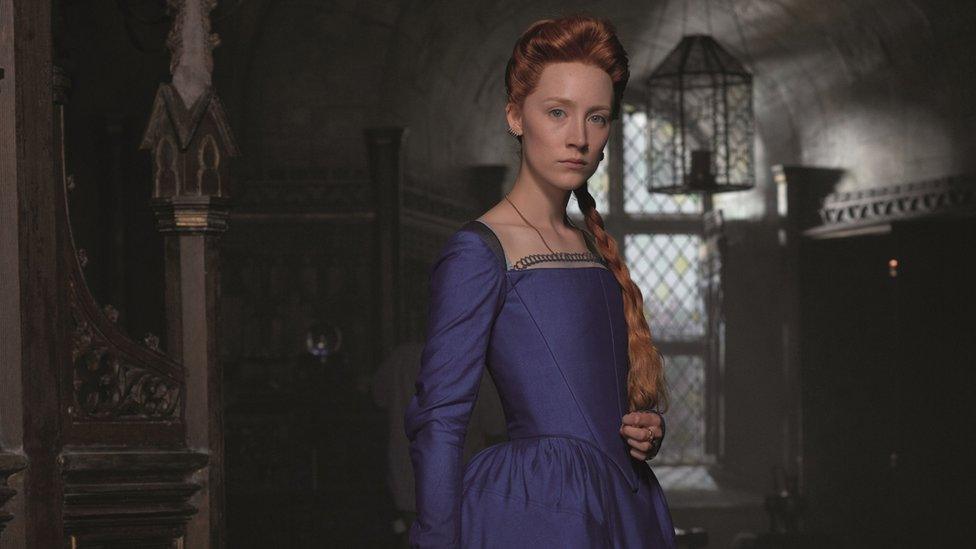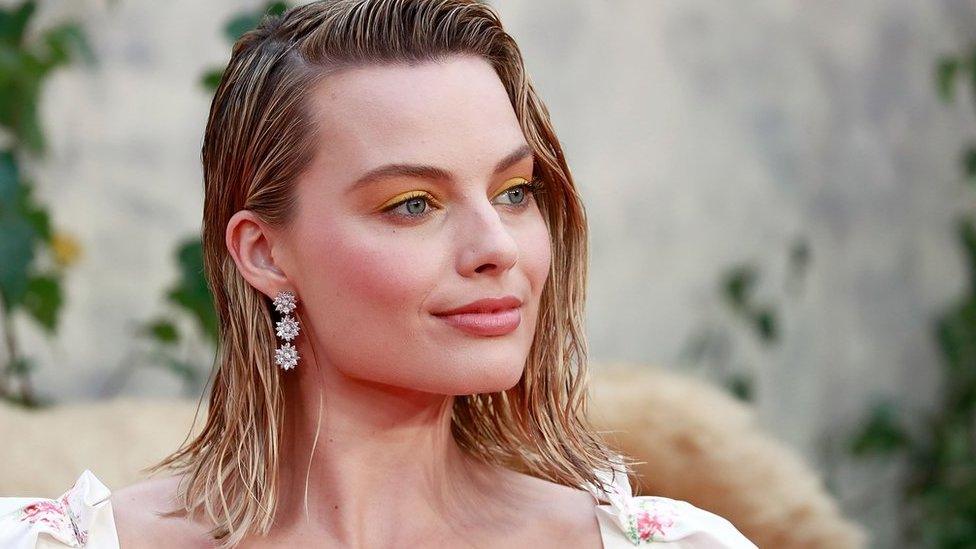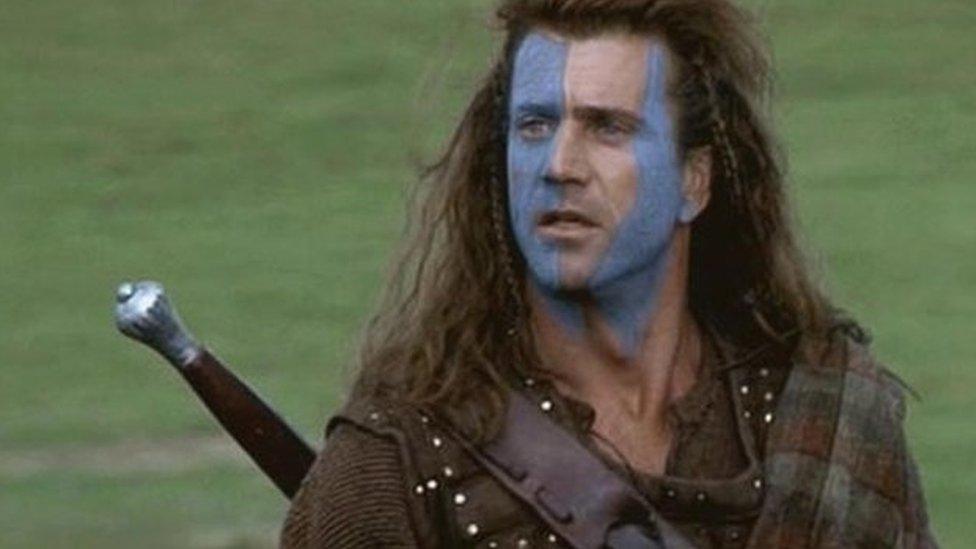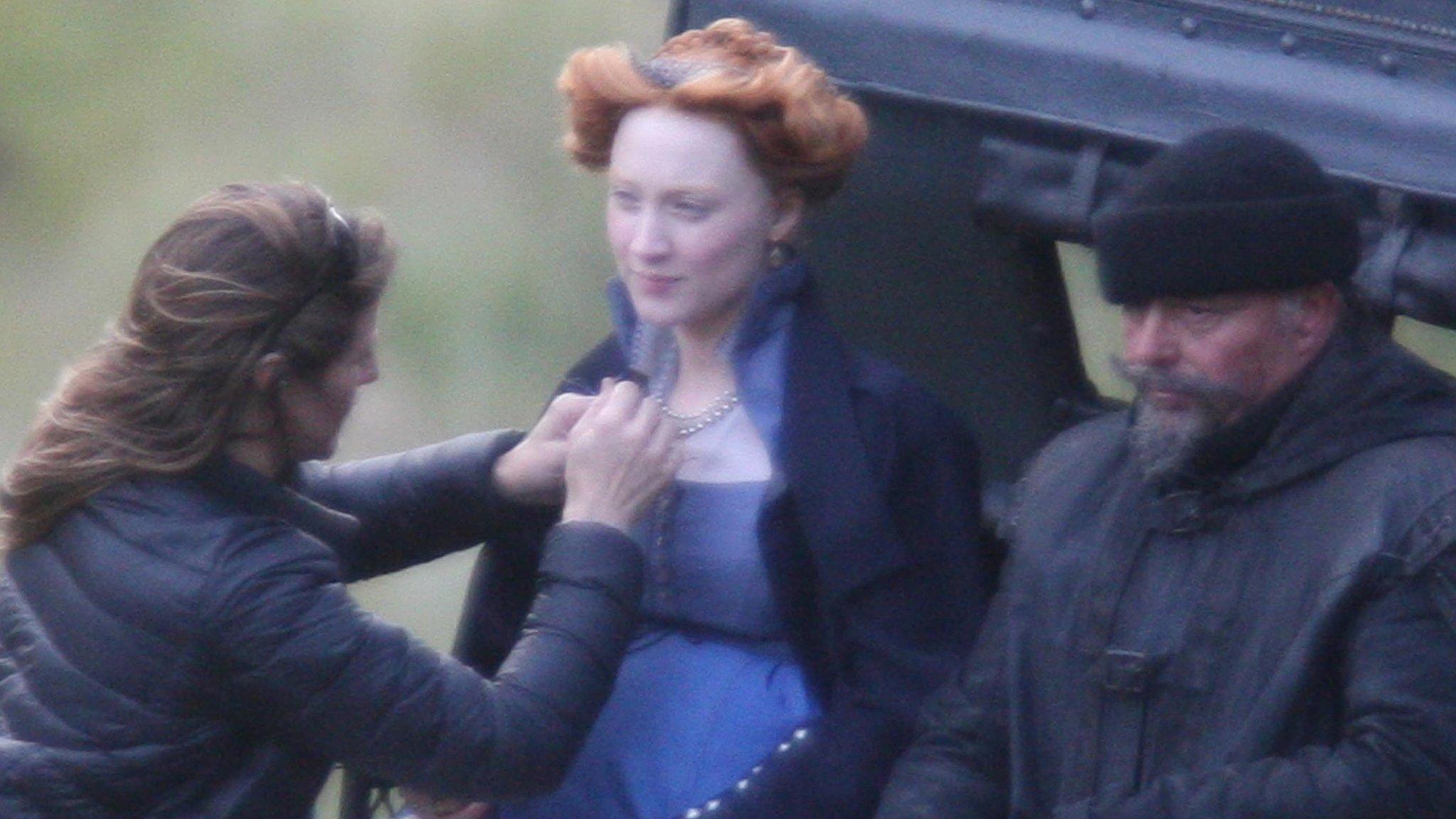Mary, Queen of Scots film 'problematic' says historian
- Published

Saoirse Ronan's look for the film was unveiled earlier this year
A new film that shows Mary, Queen of Scots meeting rival English queen Elizabeth I has been criticised for its historical inaccuracies.
Dr Estelle Paranque said the meeting between the two queens never happened.
The historian said the film, starring Saoirse Ronan and Margot Robbie, was "problematic" and could mislead viewers about their relationship.
Dr Paranque also said that Mary, who was raised in France, did not have a Scottish accent.

Margot Robbie plays Elizabeth I
Filming for the new movie took place in Scotland at the end of last year.
Irish actress Ronan, who was Oscar nominated for her roles in Atonement and Brooklyn, plays Mary while Australian actress Margot Robbie appears as Elizabeth I.
The Universal Pictures feature is expected to be released in cinemas later in the year and a preview trailer is currently being shown to audiences., external
It shows Mary meeting her cousin Elizabeth, who eventually signed the Scots queen's death warrant.
Dr Paranque told the BBC's Good Morning Scotland programme the meeting never happened.
"We have proof of that," she said.
"We have letters of frustration of Mary and we have letters of Elizabeth not knowing what she should do or not do in that case," she said.
Linlithgow Palace
The historian, who specialises in Elizabeth I, said not only did they not meet but they were rivals from the start, with Mary seeing Elizabeth as her inferior.
Dr Paranque said the initial friendship depicted in the trailer never existed.
Mary was born at Linlithgow Palace in 1542 and became queen when her father died soon after her birth.
However, Mary was taken to France in 1548 and Scotland was ruled by regents.
She returned in 1561 to begin her reign as Queen of Scots but was forced to abdicate in favour of her one-year-old son James after six tumultuous years.
After an unsuccessful attempt to regain the throne, Mary fled to England seeking the protection of her cousin .
Mary had once claimed Elizabeth's throne as her own and was considered the legitimate sovereign by many English Catholics.
Warrior queen
The Scots queen was held in captivity for 18 years before she was executed at Fotheringhay Castle in 1587, at the age of 44.
Dr Paranque said there were three main problems with the film trailer.
She said the women never met, they were not friends and the Scottish warrior queen depicted in the film would not have had a Scots accent.
"She was raised in France and she was a de Guise sometimes more than she was a Stuart, I have to say," Dr Paranque said.
She said: "An historical fiction does not have to be 100% accurate, however, I think when we know things that happened we have to keep it because otherwise where do we draw the line?
"Why not have Mary kill Elizabeth? Why not change history? It is not an historical movie any more, it is just fiction."

Mel Gibson starred as William Wallace in Braveheart, which won five Academy Awards
Scottish film critic Eddie Harrison said the historical accuracy would not bother cinema-goers if the film was exciting.
He said: "It has got two very prominent actresses in it, neither of whom are Scottish. They have dramatic licence.
"We can't dramatise letter-writing, we have to find another way of doing it.
"The primary purpose of the film is to make money and to entertain. If it sends people back to history books that's great but a history book and a film are two very different things."
Mr Harrison said films like Braveheart and Rob Roy proved to be very popular despite not having a totally accurate portrayal of history.
He said: "As long as we allow Americans to tell our stories we are always going to get a distorted view of history, entertaining as that may be."
However, Dr Paranque said using history to create false images was risky and Scotland has enough rich history that it did not need this false one.
She said: "How many people will have a wrong version of their own history and the history of Europe? I think that is problematic."
- Published2 October 2017
